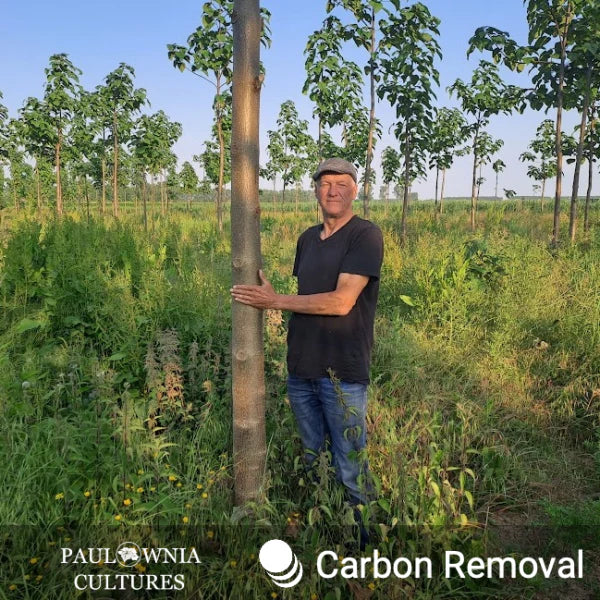Bamboo Village Nieuwkoop and Uganda: Carbon removal via bamboo farming
Bamboo Village Nieuwkoop and Uganda: Carbon removal via bamboo farming
2290 in stock
Couldn't load pickup availability
Bamboo acts as a natural carbon sink: it removes CO2 emitted from the atmosphere and stores it in the soil and the plant. Bamboo is also effective for soil protection and restoration of degraded land. It is easy to grow, grows incredibly fast and occurs naturally in many parts of the world. After reaching maturity, a part of the bamboo can be harvested annually as it regrows over the year and stays in an equilibrium. This can then be used for various applications, such as a building material, food or its fibers for textiles.
Bamboo Village Uganda works together with local communities to farm bamboo in Central Uganda. Everything from preparing the land, nursery and planting the bamboo, to maintaining the plantation and harvesting, is done by local people and mostly by hand. By employing local Ugandan people, we generate social and economic benefits. Furthermore, by carrying out the project mainly by hand instead of using heavy machinery, we are protecting the soil. We have also made other environmentally friendly decisions, such as using organic fertilizers and naturally occurring river water.
We are cultivating three different bamboo species to increase the resiliency of the system and to create a diverse cultivation system. Since the bamboo plantation is located on national forestry land, no damage was done to the primeval nature when we established the plantation (no land use change). When the harvested bamboo culms will be transferred into durable products like furniture, floors, or construction material for houses, they can act as an additional carbon sink.
About the remover:
Bamboo Village Uganda is a project with love and respect for both the planet and nature. Born as the brainchild of Dutch entrepreneur Henri Potze and developed by a team of caring, hard working experts who all share the same goal. The site in Uganda is leased from its owner Twinobuhungiro Aska, who has a forestry license for the site granted by the National Forestry Authority valid until 2057.
Website:
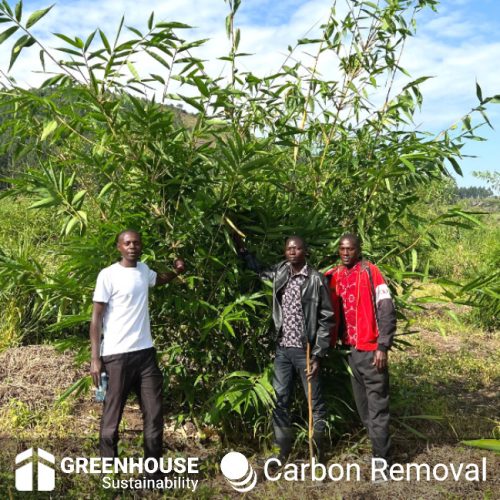
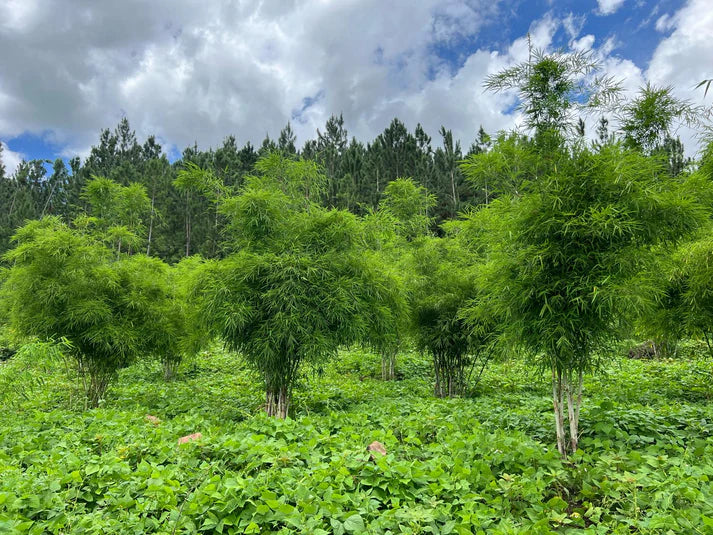
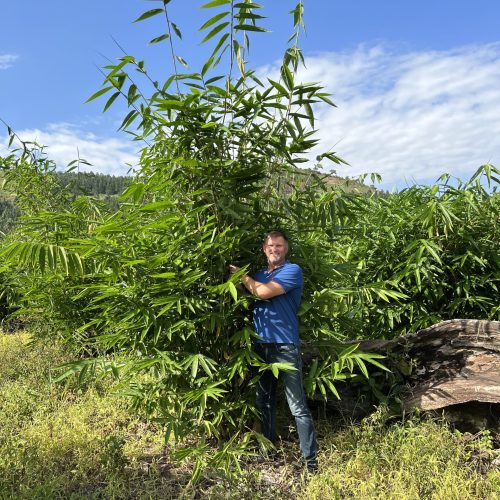
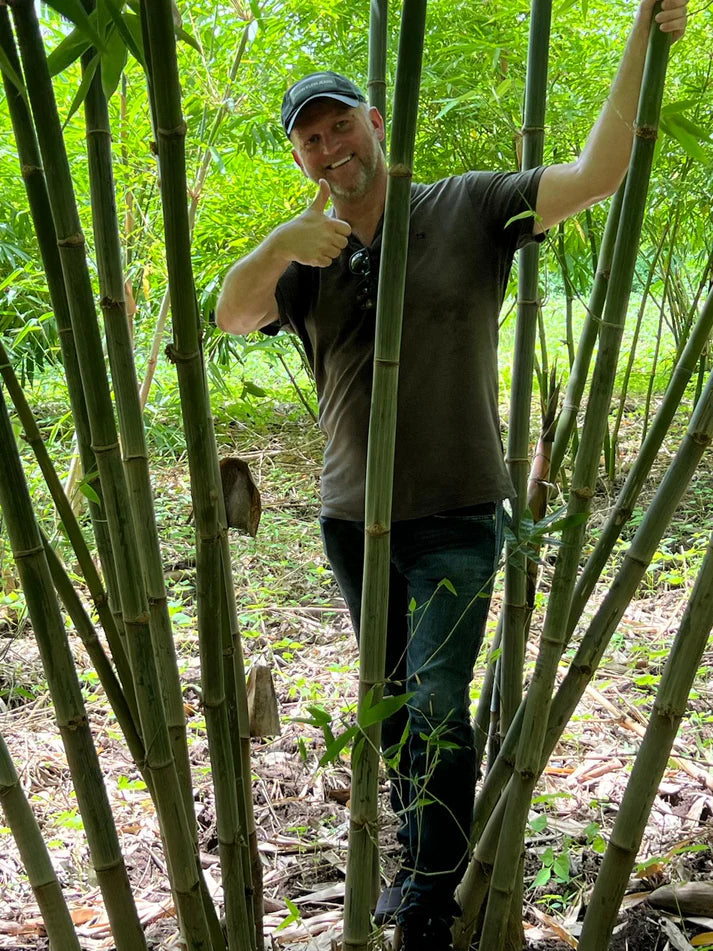
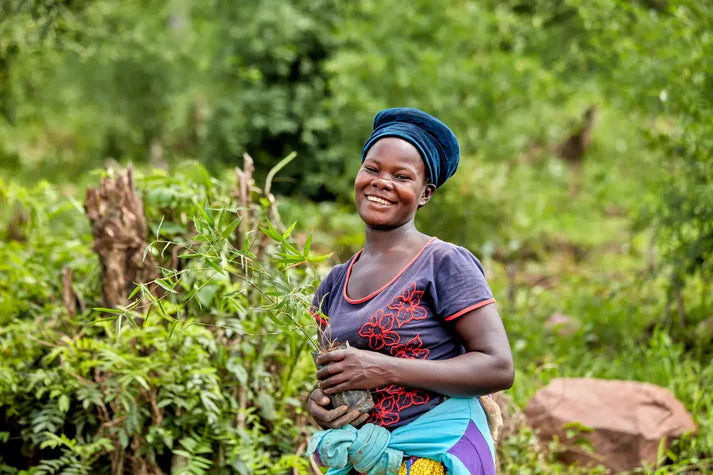
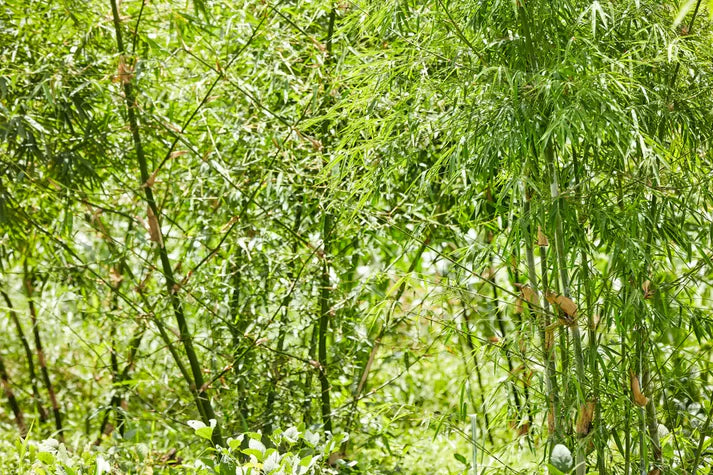
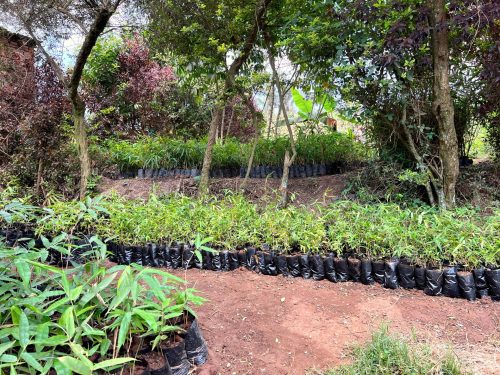
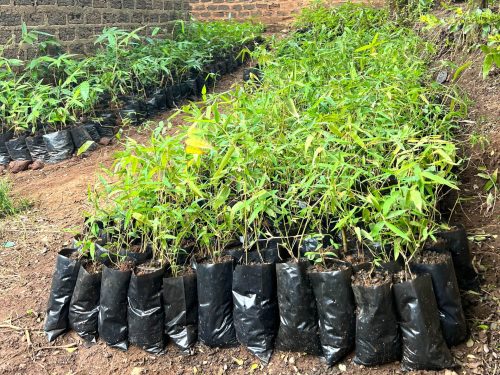


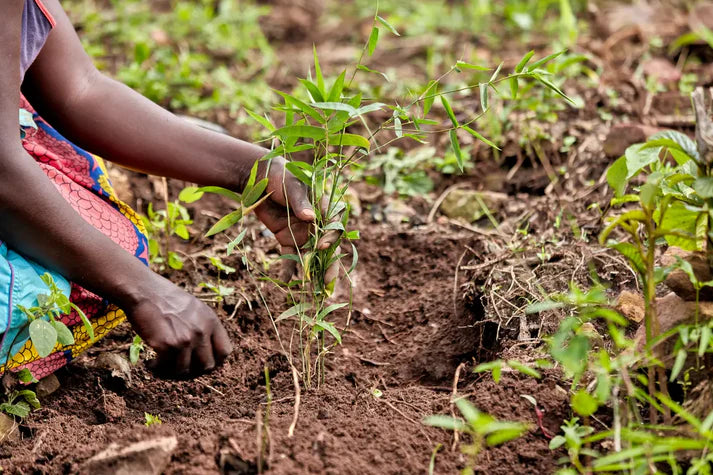
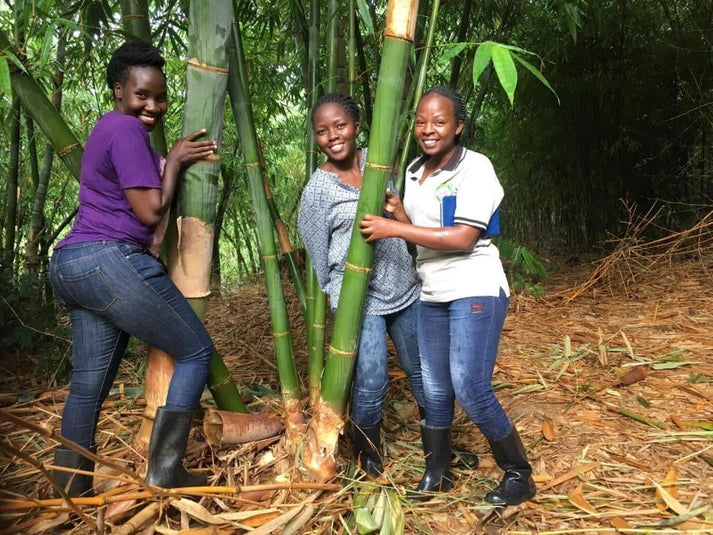
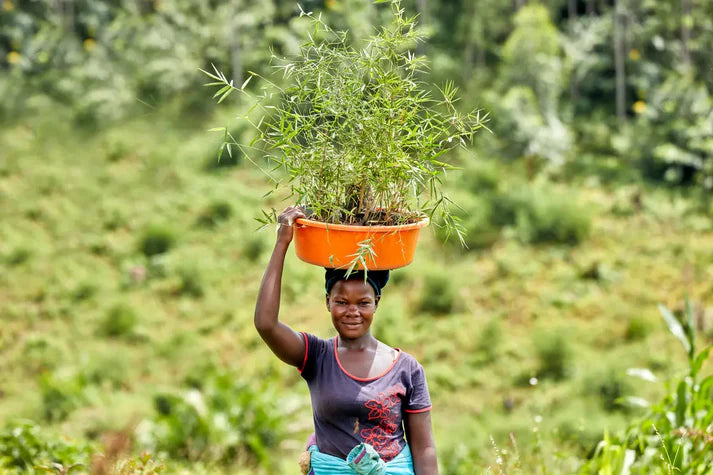
Certificates
-
CO2 removal
Amount of carbon removed:
7341 tCO2e
(= x1000 kg CO2 emitted)
-
-
Other information
Project goals
-
Objectives
-
Sustainable Development Goals
United Nations SDGs- 8: Decent work and economic growth
- 13: Climate action
Project Information
-
Project
Project Manager:
- Maurice Mulder
Status
- Certified
Planning
-
Google Maps
Kiboga, Uganda
-
Sustainable Development Goals
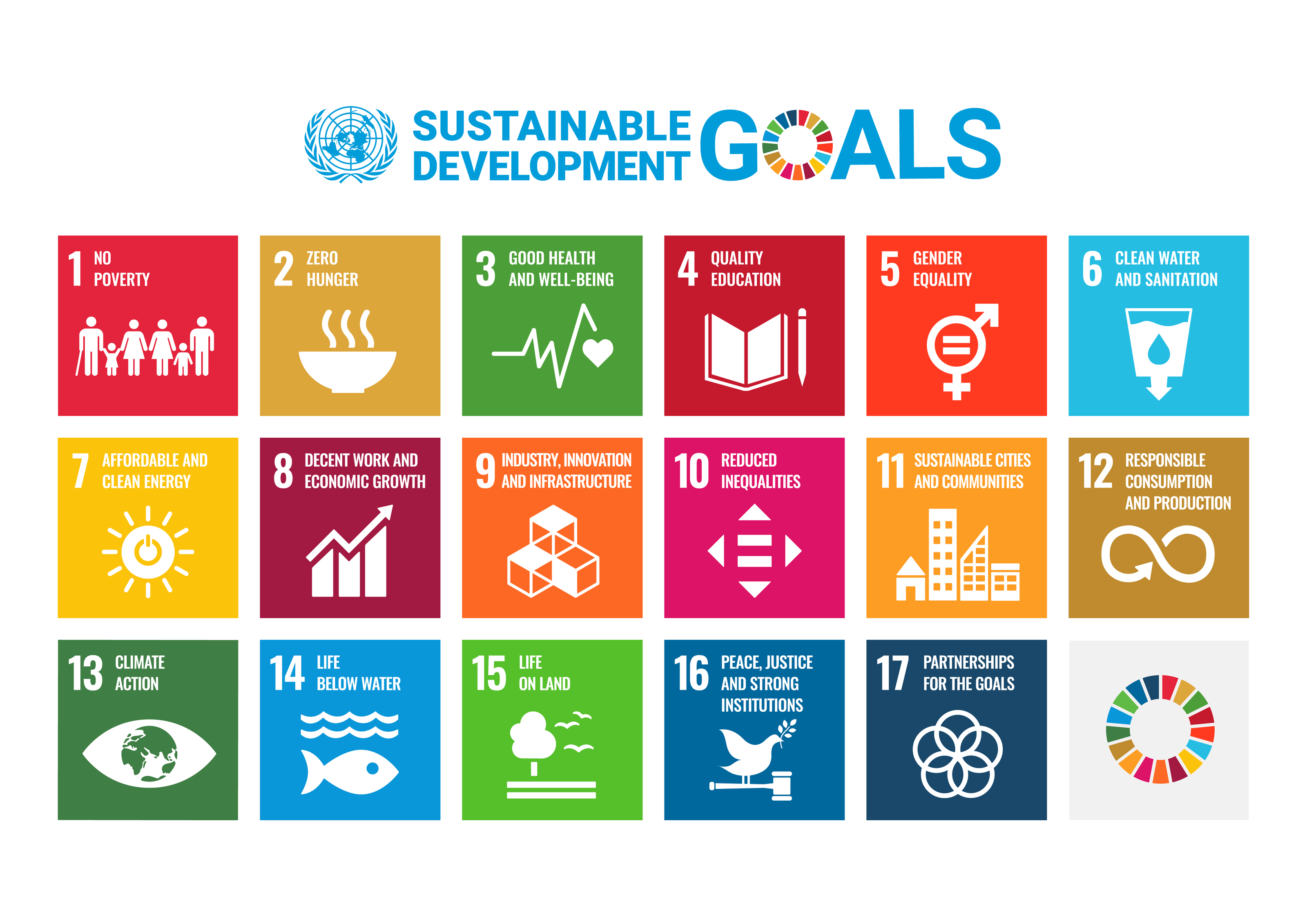
1: No poverty
There are many reasons, but in short, because as human beings, our well- being is linked to each other. Growing inequality is detrimental to economic growth and undermines social cohesion, increas- ing political and social tensions and, in some circumstances, driving instability and conflicts.
The private sector has a major role to play in determining whether the growth it creates is inclusive and contributes to poverty reduction. It can promote economic opportunities for the poor.
5: Gender equality
Regardless of where you live in, gender equality is a fundamental human right. Advancing gender equality is critical to all areas of a healthy society, from reducing poverty to promoting the health, education, protection and the well-being of girls and boys.
We fund education campaigns to curb cultural practices like female genital mutilation and change harmful laws that limit the rights of women and girls and prevent them from achieving their full potential.
8: Decent work and economic growth
Goal 8 is about promoting inclusive and sustainable economic growth, employment and decent work for all. Decent work means opportunities for everyone to get work that is productive and delivers a fair income, security in the workplace and social protection for families, better prospects for personal development and social integration. A continued lack of decent work opportunities, insufficient investments and under-consumption lead to an erosion of the basic social contract underlying democratic societies: that all must share in progress.
Providing youth the best opportunity to transition to a decent job calls for investing in education and training of the highest possible quality, providing youth with skills that match labour market demands, giving them access to social protection and basic services regardless of their contract type, as well as leveling the playing field so that all aspiring youth can attain productive employment regardless of their gender, income level or socio-economic background.
Governments can work to build dynamic, sustainable, innovative and people-centred economies, promoting youth employment and women’s economic empowerment, in particular, and decent work for all.
Implementing adequate health and safety measures and promoting supportive working environments are fundamental to protecting the safety of workers, especially relevant for health workers and those providing essential services.
13: Climate action
very person, in every country in every continent will be impacted in some shape or form by climate change. There is a climate cataclysm looming, and we are underprepared for what this could mean.
Businesses and investors need to ensure emissions are lowered, not just because it is the right thing to do, but because it makes economic and business sense as well.
15: Life on land
Goal 15 is about conserving life on land. It is to protect and restore terrestrial ecosystems, sustainably manage forests, combat desertification, and halt and reverse land degradation and stop biodiversity loss.
